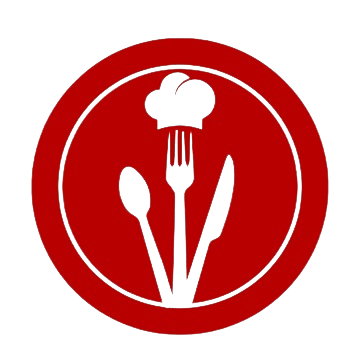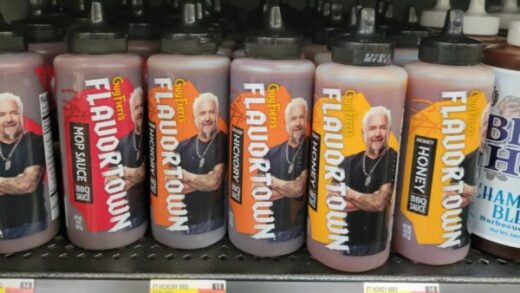In 2019 the Texas House of Representatives included Orange Holloway Sr. in Resolution 706. It was written to honor Norma Frances “Tootsie” Tomanetz, of Snow’s BBQ, in Lexington, who had just been inducted into the American Royal Association’s Barbecue Hall of Fame. The text reads “she was tutored by legendary pit master Orange Holloway.” A legend, certainly, for having taught one of the most famous pitmasters Texas has ever celebrated, but Orange was more of a mystery, having died decades ago. His mentions were always as a footnote to Tomanetz’s story, which is why Orange’s distant cousin Seth Dockery III recently organized a family reunion to share a fuller picture of Owens “Orange” Lee Holloway Sr.
We met in June in Giddings, 55 miles east of Austin, where Orange lived his entire life. His eldest child, Orange Holloway Jr., whom the family simply calls Junior, had just ridden in the Juneteenth parade. The city of Giddings had honored the 96-year-old as the oldest Black man in Lee County, where he still resides. His sisters, Ereline Holloway Gibson, age 94; Vergie Delores Holloway Brown, age 91; and Myrtle Louise Holloway Mitchell, age 89, had traveled in from Austin along with several grandchildren and cousins.
Orange’s barbecue domain was the pit room at City Meat Market in Giddings, where cooks still use the same brick pit he cooked on. His children had fond memories of the place, but the sisters hadn’t been there in years until we all met for a lunch of pork ribs, pork steaks, and smoked beef sausages. Visiting this place also brought back painful memories. Orange suffered a heart attack, collapsed, and died on the dining room floor on December 15, 1981. He was 73. “It was a long time before I could go into the market after Daddy passed,” Ereline said.
During the lunch, we were joined by several of Orange’s old coworkers. Tomanetz was there along with Mike Maass, who showed off an old injury his finger suffered in the sausage grinder. Barbara Doyle Wilson and Gary Doyle, the daughter and son of Hershel and Lillie Doyle, who had owned the market from 1952 until 1982, were also in attendance. None of them knew how long Orange had worked as a pitmaster. He was a farmer in 1940 and a “butcher’s helper” at a meat market in 1950, according to census records. Orange’s obituary says he started his meat-market career with Harmon Knittel, who had a market at the Orsag’s corner in Giddings. Schubert Hannes bought that market and moved it to the current location of City Meat Market, and Orange moved with it. He continued working for the Doyles when they purchased the market in 1952.
As we gathered around three tables in the small dining room, I overheard a family member say, “the sausage don’t taste the same,” as the rest nodded in agreement. It has been 43 years since Orange made a batch of sausage, so it’s no surprise that it has changed, but that was the one barbecue item everyone most associated with Orange. His recipe wasn’t recorded, and Tomanetz said he never measured the ingredients anyway. “He could estimate how many pounds of meat he had there, and he took a handful of pepper and threw it on there, and took handfuls of salt and threw it on there, and took some red pepper,” she recalled from working with him. Tomanetz arrived as a 31-year-old barbecue newbie to the pit room of City Meat Market in 1966. After ten years of tutelage under Orange, Tomanetz and her husband, White, moved to Lexington to open a meat market. She used what she had learned from Orange to cook the barbecue and make their sausage. “Mine I think is pretty close to it,” she said, but she hasn’t made a batch since 2002.
“People would drive through Elgin to get to Giddings for sausage,” Albert Crittendon Jr. said. He is Orange’s grandson and recalled Giddings as the Sausage Capital of Texas long before Elgin got the official designation in 1995. “They wasn’t greasy. They had real good seasoning taste,” Myrtle remembered. She also recalled a story about her first time helping Orange, who called her Bright Eyes, stuff and tie the raw sausages. “On my way to school I stopped by to help Dad. I was helping him tie the links, and he let me tie them,” she said. “When I got home, he told me, ‘Bright Eyes, I can’t have to you help me tie no links because all of them busted.’ ” That was the last sausage Myrtle tied.

Orange didn’t just cook for the market. The Doyles also operated a slaughterhouse outside of town. Ereline remembers helping her father at the slaughterhouse, but she didn’t like it. “It was sad,” she said. Gary remembers watching Orange slaughter the cattle a lot differently than they do today. There was a metal door that opened into a small pen where they would bring cattle one at a time. “He would take a single-shot .22, and there was a little porthole in the door. He would open it and shoot,” Gary said. Orange would then process the carcasses before taking them back to the meat market to butcher them into individual cuts. “The barbecue was just a sideline,” Gary explained. “It was how to get rid of the meat in the display after a day or two when it didn’t sell.”
Gary said Orange’s shooting ability was on display one day in Giddings when they held a rodeo. “A bull went crazy,” Gary said. “He was running and knocking over horses and stuff. Orange pulled out a rifle, and I think he was on a horse. He shot the bull in the head and I think killed it. His stature kinda rose a little bit,” Gary recalled, adding, “He told my daddy later, ‘Mr. Herschel, that was a lucky shot. I don’t know if I could do it again, but it counted.’ ”
Orange grew up in a farming family, and he raised his children on a farm in an old German settlement northeast of Giddings called Loebau, on the banks of West Yegua Creek. “When we were real small he was a cowboy,” Junior remembered of his father. Orange would help ranchers move animals to better grazing. He and his wife, Ethel May Shields, had four children, but when Junior was twelve, and the youngest, Myrtle, was just five, Ethel died unexpectedly while in town shopping. When the family got the news, the children went out to the cotton patch where they had just seen her working earlier in the day. “Us children, we went out there looking at her tracks. And all of us went to crying,” Ereline remembered.
Ethel had gone to town to buy the family new clothes. A man from the store came to their house after she passed to deliver the clothes, and they wore them to her funeral. The following year, Orange was remarried to Loretta Gates Gentry, who the children called Mama Retta. “She was really good to us,” Ereline said.
On the farm, they had a pet pig and a pet squirrel that bit Myrtle. As each of the children got older, they moved off the farm while Myrtle continued getting into trouble. She shot a hole through the floor of the house after accidentally pulling the trigger of the shotgun she was fetching for her father. Then there was the tractor accident. “I thought I was hitting the brakes, but I hit the gas. I was close to the creek, and it started sliding and went over into the creek,” Myrtle said. She was thirteen at the time, and Orange and Mama Retta decided it was time for the family to leave the farm. They moved to a house in Giddings soon after.
Orange still maintained his group of highly trained hunting dogs, owning up to twenty at a time. He had trained some to track raccoons and others for foxes. If Orange was known for anything more than his barbecue skills, it was the prowess of hunting coyotes, which folks in the area referred to as wolves back then. “Anybody that had a wolf, they would give him a call, and he would take his dogs up there and get it,” Orange’s granddaughter Wanda Holloway Reverta said. He called her Frosty, and when they went to church every Sunday, Orange would give her a bag of candy to pass out to all the kids at church. One Sunday she got back to the truck before anyone else and saw the bull’s horn that Orange had fashioned into an instrument to call his dogs. Out of curiosity, she blew on it. Wanda said they were a long way from home, but still, “those dogs just started howling, and my grandfather came out said, ‘Frosty, I know that was no one but you.’ ”
A tragedy with the dogs led to a 1967 case that was monumental in Lee County. “The dogs went up to some people’s property and they shot them. They shots the dogs,” Junior explained. An article in the Giddings Times explained that Orange and his friend Louis Banks were hunting for wolves on the Woodward Ranch near Lexington. Carl Riske, a white cattle farmer who was unhappy about the dogs trespassing, approached them with his rifle. Banks pleaded with him not to shoot the dogs, but he killed three of them, and Orange sued Riske for damages.
Local attorney Michael J. Simmang took on the case less than a year after getting his law license. Simmang’s grandfather started practicing law in Lee County in 1898, and his father in 1929. “My family always tried to take care of the people who needed caring,” Simmang, now 82 and semi-retired, told me. “It was a poor Black man who was abused by a white man,” Simmang said. He also knew the family well, and having an office across from City Meat Market meant he had eaten plenty of Orange’s barbecue.
Simmang remembers the case well because it was his first jury trial. A jury of five men and one woman awarded Orange $500, to be paid by Riske, for the loss of his dogs. Gary Doyle said he remembered it being the first time a Black man had successfully sued a white man in Lee County. “If it wasn’t the first, it was close,” Simmang said when I asked if he remembered it that way.
Barbara Doyle Wilson reminded the group that she graduated from Giddings High School in 1965, its last year as a segregated school, and Orange’s case was just two years later.
Ereline remembered growing up in a segregated Giddings. As a child she loved being around the market when her father had to work late. It was right in the middle of town, so she would sneak into the movie theater next door but had to stay in the balcony because the lower level was only for whites. Wanda was born in 1959, and said, “We were still going into the back of Pratho’s [department store], and going to the back of all those stores until I was in first grade.” She said they went into the side door at City Meat Market too, but the family couldn’t agree if they weren’t allowed to come in the front door or preferred the side door next to the barbecue pit because that’s where Orange could always be found.
Wanda said Orange was a proud Black man, and told her to be proud of her heritage as well. Many of their family members had lighter skin and chose to pass as white, Wanda said. “They chose to go the white route, so they can be able to walk through the front door,” she remembered Orange telling her one day while Orange, Loretta, and the grandkids sat on their front porch. Wanda recalled, “He said, ‘Girls, always stay true to who you are.’ ”
The family and City Meat Market lost so much when Orange died. His obituary said he “had been hospitalized numerous times the past year or two with heart trouble, and as recent as a month ago he suffered a minor attack. But he always returned to work at the market as soon as he was able.” Orange was dedicated to the City Meat Market. Gary told stories of all the characters and hotheads who had worked there, but said Orange was their steady captain who never lost his temper. “He was always the common sense guy. When everybody went crazy, he was the one that kept his head,” Gary said.
Orange’s obituary described the final moments before his collapse. “He had been working in the barbecue section in the back of the market and had just brought change for the register up front.” What it doesn’t mention were his many other talents. He loved to play baseball, and the blues on his guitar. Wanda said, “I remember with Grandpa, the reason he was able to connect with some people was because he spoke German.” She watched him talk with customers who could only speak German. “He loved everyone,” she said. “His heart was so big.” A year after Orange died, the Doyles sold the market to the late Gerald Birkelbach. His daughter Brooke Kovar has run City Meat Market since his death in 2021.
“Orange was good as gold,” Gary said. Similar lines were repeated by so many at this reunion that it bears repeating. As we wrapped up our conversation, Seth Dockery III provided his own summation after hearing so many new details of Orange’s life. “In the fifties and sixties sports didn’t bring people together. Church and school didn’t bring people together, but in Giddings, barbecue brought people together, and that’s his legend and legacy.”
#Orange #Holloways #Story #Training #Tootsie #Tomanetz




